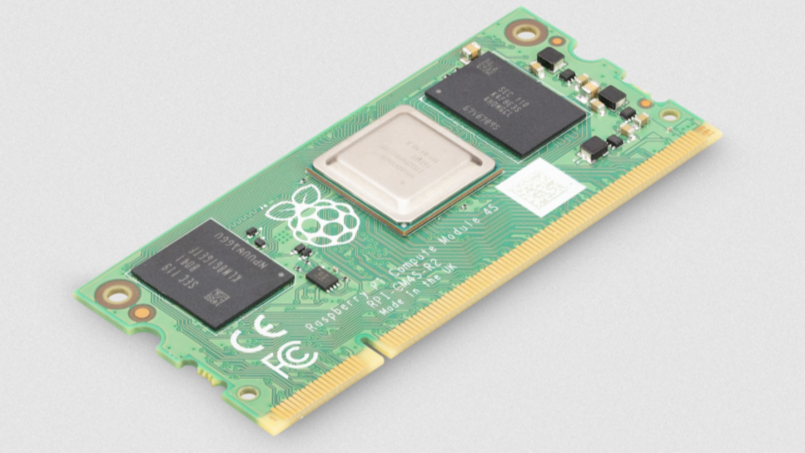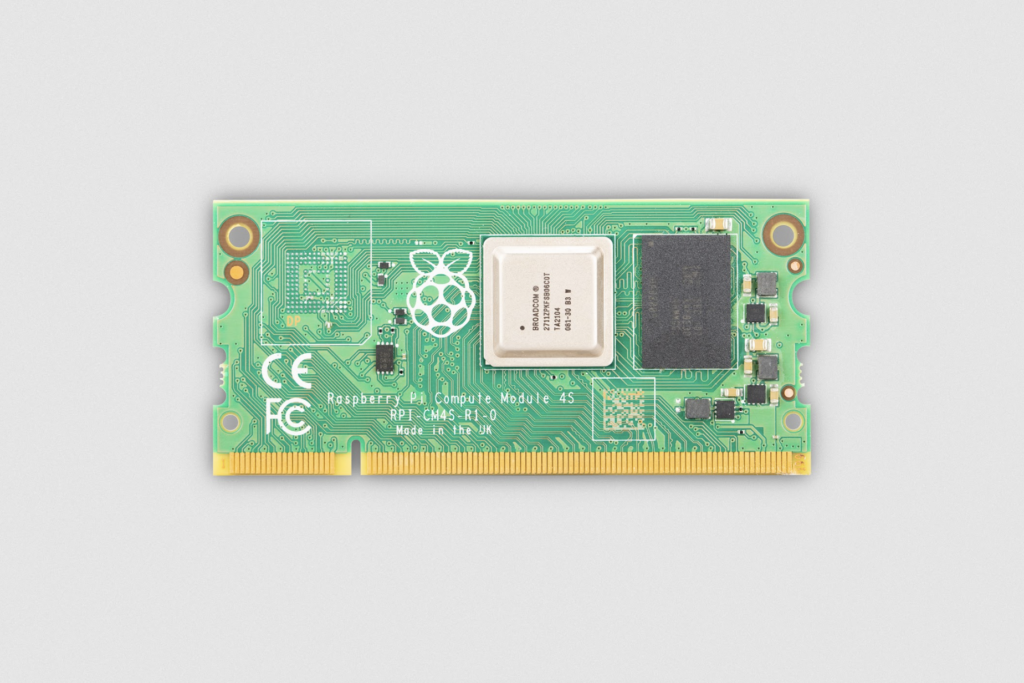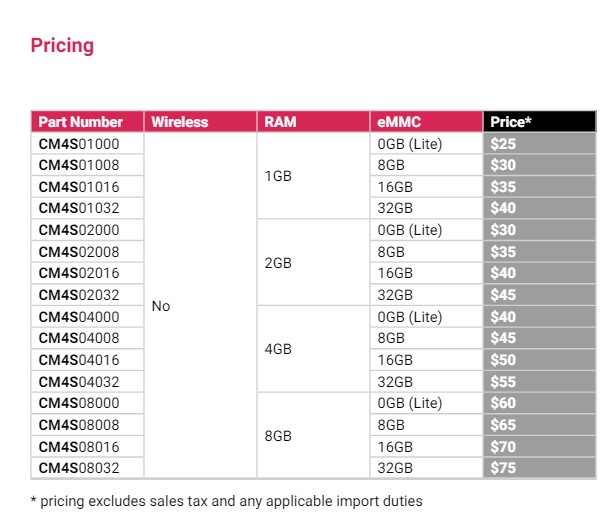Raspberry Pi Compute Module 4S memory variants announced
The bridge between Compute Module 3 and 4.

The Raspberry Pi Compute Module was originally launched back in 2014, and all models shared the same 200-pin SODIMM interface that enabled it to be used in a carrier board — until the Compute Module 4. This meant that industrial customers wishing to upgrade their products from the Compute Module 3 / 3+ to Compute Module 4 needed to purchase new carrier boards. That was until Raspberry Pi released the Compute Module 4S. Initially Module 4S was offered with just 1GB of RAM, but today Raspberry Pi has announced that it will be offering Module 4S in 2, 4 and 8GB variants.

The Compute Module 4S is a bridge for industrial customers who want more processing power, but who don't want the expense of replacing their custom carrier boards — boards which breakout the GPIO, USB, Ethernet, Camera interfaces. With that in mind, the Compute Module 4S does not share the same pinout connection as the Compute Module 4. Instead it uses the SODIMM interface used with older Compute Module boards. Measuring just 2.66 x 1.06 inches (67.6 x 27mm), it genuinely looks like a stick of older DDR2 SODIMM memory — but don't put this in your machine!
Looking through the datasheet [PDF], we can see that it is essentially a Raspberry Pi Compute Module 4 in a different configuration. There are even options for onboard eMMC storage in 8, 16, and 32GB configurations. There is no mention of Wi-Fi — unlike the Compute Module 4, which has variants with onboard Wi-Fi and Bluetooth. The reason for the Wi-Fi omission is likely due to it replacing older Compute Modules, which lacked Wi-Fi. Including Wi-Fi on the Compute Module 4S could therefore foul up the intended use: Industrial user products would have to be certified for radio emissions, and that would cost money.
| SoC | Broadcom BCM2711, quad core Cortex-A72 (ARM v8) 64-bit SoC @ 1.5GHz |
| RAM | 1/2/4/8GB LPDDR4-3200 SDRAM with ECC |
| Storage | 0/8/16/32GB eMMC flash memory |
| Row 3 - Cell 0 | SDIO (CM4SLite) |
| Ports (via carrier board) | 1 x USB 2 |
| Row 5 - Cell 0 | 46 x GPIO ports |
| Row 6 - Cell 0 | 1 x HDMI 2.0 |
| Row 7 - Cell 0 | 1 x MIPI DSI (Display) |
| Row 8 - Cell 0 | 1 x MIPI CSI (Camera) |
If you fancy getting your hands on a Compute Module 4S then you'll need to be an industrial customer and be ready to buy in bulk (200-unit boxes, starting at $25 per unit). Lead time is a maximum of six weeks at the time of writing. On page four of the datasheet it explicitly states that:
"The Raspberry Pi Compute Module 4 SODIMM (CM4S) is intended for specific industrial customers migrating from Compute Module 3 or Compute Module 3+ and is not for general sale. For new customers who are designing products, we recommend using Raspberry Pi Compute Module 4."
That said, we'd love to get our hands on one for a comparison with the Compute Module 4.
The Compute Module 4S was first spotted way back in 2022, inside a Revolution Pi product. Since then it has been used in self-pour beer taps and medical monitoring devices. Units will be in production until at least January 2034. Unit prices start from $25 for a Compute Module 4S with 1GB RAM and no eMMC, and go up to $75 for an 8GB with 32GB of eMMC.
Get Tom's Hardware's best news and in-depth reviews, straight to your inbox.

Les Pounder is an associate editor at Tom's Hardware. He is a creative technologist and for seven years has created projects to educate and inspire minds both young and old. He has worked with the Raspberry Pi Foundation to write and deliver their teacher training program "Picademy".
-
bit_user Reply
I think no medical device should get FDA approval that doesn't at least use ECC memory (or in-band ECC). As far as I know, no Pi has ever supported it, which makes me laugh at the characterization of them as "industrial" products.The article said:The Compute Module 4S was first spotted way back in 2022, inside a Revolution Pi product. Since then it has been used in self-pour beer taps and medical monitoring devices. -
Rakanyshu Reply
Agreed, all Pi productos are educational imo, same as arduino and the like. So you can develop an interest by making some projects.bit_user said:I think no medical device should get FDA approval that doesn't at least use ECC memory (or in-band ECC). As far as I know, no Pi has ever supported it, which makes me laugh at the characterization of them as "industrial" products. -
bit_user Reply
Raspberry Pi was originally aimed at education and tinkerers/makers.Rakanyshu said:Agreed, all Pi productos are educational imo,
I think it would make sense for there to be a Pro version of the Pi, which had standard industrial computing features, but the underlying SoCs they use do not appear to be designed to this standard and there's no getting around that fact.Rakanyshu said:same as arduino and the like. So you can develop an interest by making some projects.
